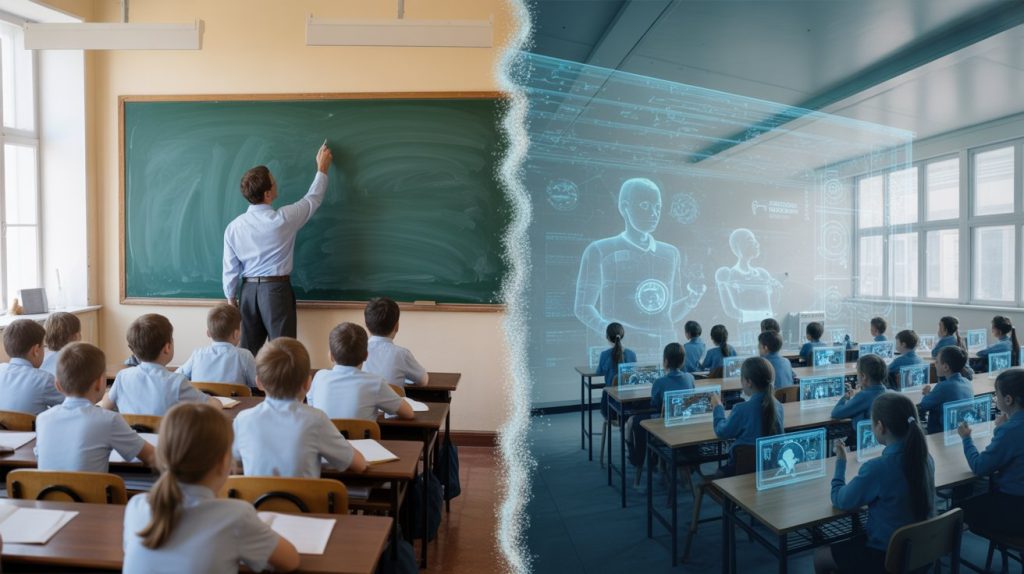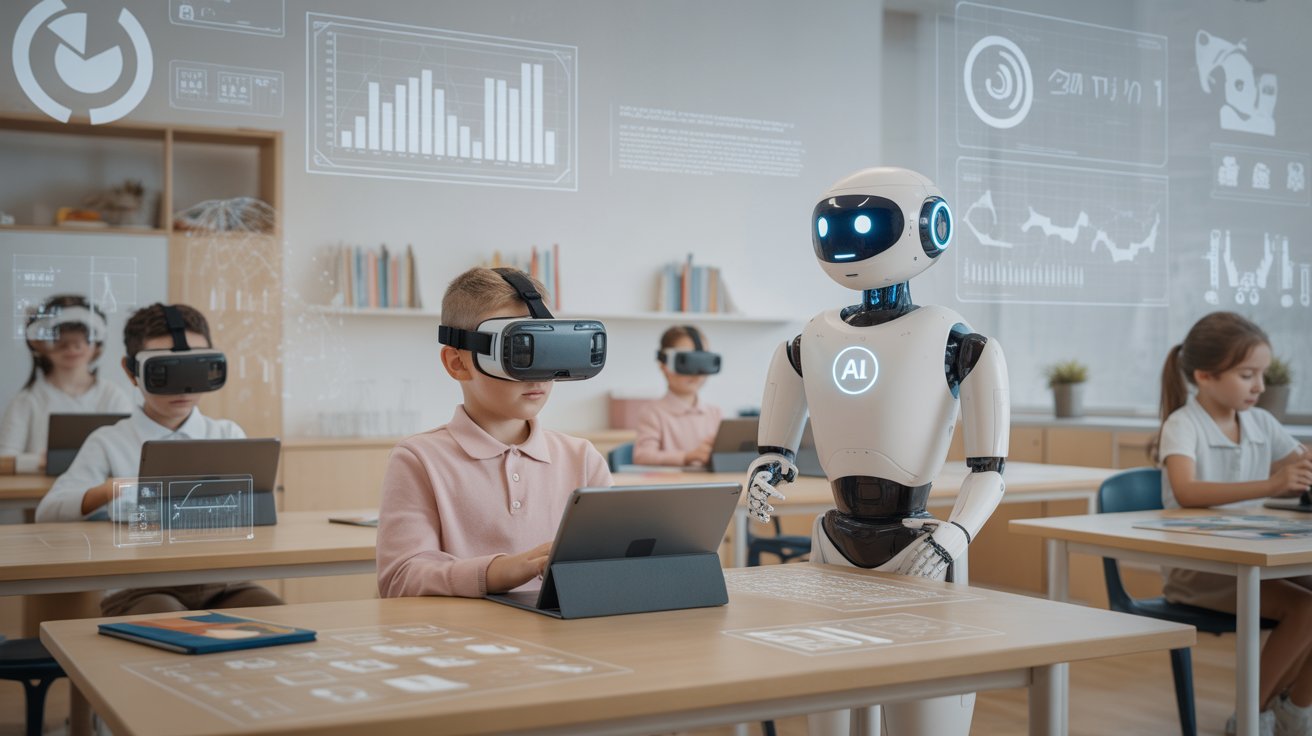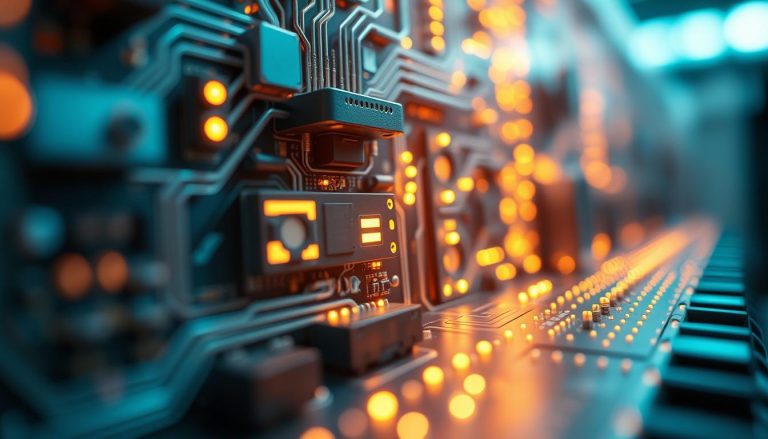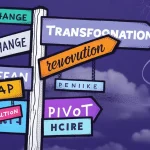AI education
The advent of Artificial Intelligence (AI) is poised to transform numerous industries, and one of the most significant domains witnessing this unprecedented change is AI education. As we delve deeper into the 21st century, AI education continues to unlock innovative pathways for teaching and learning, fundamentally enriching the educational experience for students and educators alike while reshaping the very foundations of how knowledge is transmitted and acquired. This comprehensive exploration examines how AI is revolutionizing education by enhancing personalized learning experiences, streamlining complex administrative tasks, and strategically shaping tomorrow’s workforce with precision and insight.
Personalizing Learning Experiences Through Advanced AI Technology
One of the most remarkable and transformative impacts of AI in education lies in its unprecedented ability to facilitate genuinely personalized learning experiences that adapt to each student’s unique cognitive profile. Traditional teaching methods have long relied on a standardized one-size-fits-all approach, which frequently overlooks the diverse learning styles, cognitive preferences, and individual paces that characterize different students. This conventional model often leaves some learners behind while failing to challenge others appropriately, creating gaps in understanding and engagement.
AI-driven educational solutions represent a paradigm shift by providing meticulously tailored educational interventions that dynamically adapt to each learner’s specific needs, preferences, and learning trajectory. These sophisticated systems continuously monitor student progress, analyze learning patterns, and adjust content delivery methods in real-time to optimize comprehension and retention rates.

Recommended Tool for Smarter Online Learning
If you’re looking to supercharge your online study sessions and transform your learning experience, CoursemateAI 2.0 stands out as the perfect AI education-powered companion designed to revolutionize how you engage with educational content. This innovative platform helps you efficiently summarize complex content, generate comprehensive study notes, ask intelligent questions that deepen understanding, and maintain organized learning schedules — all seamlessly integrated in one intuitive interface. Whether you’re pursuing online courses, engaging in independent study, or supplementing traditional classroom learning, this cutting-edge tool can dramatically improve your learning outcomes and academic performance.
👉 Check out CoursemateAI 2.0 here
Intelligent Tutoring Systems: The Future of Individualized Education
Intelligent Tutoring Systems (ITS) represent sophisticated AI applications that leverage advanced machine learning algorithms to analyze student performance comprehensively in real-time, meticulously identifying both strengths to build upon and weaknesses that require targeted intervention. These revolutionary systems go beyond simple assessment by offering highly customized resources, detailed feedback mechanisms, and adaptive learning pathways that enable students to progress at their own optimal pace while maintaining educational rigor.
By focusing strategically on specific areas that require improvement while reinforcing existing strengths, ITS can help students build solid foundational knowledge, enhance their overall learning outcomes, and significantly boost academic confidence. These systems also provide valuable insights to educators, allowing them to understand each student’s learning journey more comprehensively and offer targeted support where needed most.
Learning Analytics: Harnessing Big Data for Educational Excellence
AI’s capacity to process vast amounts of educational data represents a game-changing development in understanding student learning patterns and predicting educational outcomes. Learning analytics employs sophisticated machine learning algorithms and statistical models to identify complex patterns, trends, and insights about student performance that would be impossible to detect through traditional analysis methods.
These advanced systems within the realm of AI education can predict future learning behaviors with remarkable accuracy, allowing educators to implement proactive interventions when students begin to struggle, often before the students themselves recognize they need help. This predictive approach not only helps improve retention rates and academic success but also fosters a more supportive and responsive educational environment that anticipates and addresses challenges before they become significant obstacles.
Streamlining Administrative Tasks Through Intelligent Automation
Beyond enhancing direct learning experiences, AI demonstrates tremendous potential in automating and optimizing administrative tasks, effectively freeing educators to focus their valuable time and energy on what truly matters most — meaningful teaching, student engagement, and educational innovation. From comprehensive grading systems to complex student record management, AI can significantly reduce the administrative burden on teachers and educational staff, allowing them to allocate their expertise toward high-value activities that directly impact student development and learning outcomes.
Automated Grading Systems: Precision and Efficiency Combined

Grading assignments, examinations, and assessments can be an exceptionally time-consuming and mentally taxing task for educators, particularly in large classroom environments where hundreds of submissions require evaluation. AI-powered grading systems have evolved to quickly and accurately evaluate not only traditional multiple-choice questions but also complex essays, creative assignments, and even sophisticated project-based assessments with remarkable precision and consistency.
This technological efficiency not only saves teachers countless hours of repetitive work but also ensures consistent and completely unbiased assessments across all students, eliminating potential human inconsistencies and providing fair evaluation standards. Additionally, these systems can provide detailed feedback and suggestions for improvement, offering students more comprehensive guidance on their academic progress.
Intelligent Scheduling: Optimizing Educational Resources
AI technologies can revolutionize school operations, particularly in the complex area of scheduling and resource allocation. By analyzing comprehensive data on student preferences, course requirements, resource availability, teacher schedules, and facility constraints, AI tools can create highly optimized timetables that maximize educational efficiency and student satisfaction.
This sophisticated scheduling approach ensures that students gain access to the courses and resources they need while effectively balancing the numerous logistical challenges that educational institutions face daily. The result is improved resource utilization, reduced scheduling conflicts, and enhanced overall educational delivery.
Shaping the Future Workforce Through Strategic AI Education Planning
As the global job market continues to evolve rapidly, driven by technological advancement and changing economic demands, education systems must adapt and keep pace with these dynamic changes to prepare students for future career success. AI plays a pivotal and increasingly crucial role in ensuring that students acquire not just traditional academic knowledge but also the specific skills, competencies, and adaptabilities necessary for thriving in tomorrow’s workforce landscape.
AI is playing a major role in preparing students for the workforce of tomorrow — a vision also explored in Unlocking the Future: How AI is Revolutionizing Education!.
Advanced Skill Identification and Strategic Development
Cutting-edge AI technologies can identify and analyze in-demand skills across various industries by processing real-time labor market trends, job posting requirements, salary data, and industry growth projections. Educational institutions can leverage this comprehensive data analysis to design forward-thinking curricula that strategically align with emerging workforce needs and industry demands.
This might include integrating specialized courses on artificial intelligence applications, advanced data analytics, digital literacy, cybersecurity fundamentals, and emerging technologies, ensuring that students graduate well-equipped with relevant, marketable skills for the challenges and opportunities that lie ahead in their professional careers.
Intelligent Career Guidance Systems: Personalized Path Planning
AI-driven career guidance systems represent sophisticated counseling tools that can help students make informed, strategic decisions about their educational and professional futures. By analyzing individual interests, academic strengths, personality traits, and market trends, these intelligent systems can suggest suitable career paths and specific educational opportunities that align closely with students’ personal aspirations, abilities, and market realities.
For those interested in how AI tools are streamlining business and academic operations alike, you might also explore Business process automation with artificial intelligence, which highlights similar advancements.
These systems can also provide ongoing career counseling, helping students understand industry requirements, salary expectations, growth potential, and the educational pathways needed to achieve their professional goals successfully.

Top Free AI Tools for Education: Essential Resources for Modern Learning
To help students, educators, and institutions get started with AI-enhanced learning, here’s a comprehensive overview of the most effective free AI tools available for educational purposes:
| Tool Name | Primary Function | Key Features & Benefits |
|---|---|---|
| Khan Academy’s Khanmigo | AI-powered tutoring and personalized learning | Provides personalized learning paths, interactive exercises, instant feedback, and adaptive assessment across multiple subjects including math, science, and humanities |
| Grammarly | Writing assistance and improvement | Real-time grammar checking, style suggestions, plagiarism detection, and writing enhancement recommendations for essays, research papers, and academic writing |
| Duolingo | Language learning with AI adaptation | Gamified language learning experience, adaptive difficulty levels, speech recognition, and personalized lesson plans for over 40 languages |
| Socratic by Google | Homework help and concept explanation | Camera-based problem solving, step-by-step explanations, visual learning aids, and subject coverage including math, science, history, and literature |
| Coursera’s AI Course Assistant | Online course support and guidance | Automated course recommendations, progress tracking, quiz assistance, and personalized study scheduling for thousands of university-level courses |
| Quillbot | AI writing and paraphrasing tool | Content paraphrasing, grammar checking, citation generation, and writing style improvement for academic papers and research projects |
| Photomath | Math problem solving and learning | Camera-based math problem recognition, step-by-step solutions, graphing capabilities, and detailed explanations for algebra, calculus, and geometry |
| Edmodo AI | Classroom management and learning analytics | Student progress tracking, automated grading assistance, personalized learning recommendations, and parent-teacher communication tools |
| Cognii Virtual Learning Assistant | Conversational AI tutoring | Natural language interaction, personalized tutoring conversations, critical thinking development, and writing skills improvement |
| Century Tech | Adaptive learning platform | AI-driven learning paths, real-time performance analytics, curriculum alignment, and personalized content recommendations across multiple subjects |
These tools represent just a fraction of the AI-powered educational resources available today, demonstrating how accessible and practical AI integration in education has become. Most of these platforms offer both free versions and premium upgrades, making advanced AI learning assistance available to students and educators regardless of their budget constraints.
Challenges and Critical Considerations for AI Integration
Despite the tremendous potential benefits and exciting possibilities, the integration of AI education technologies in educational settings is not without significant challenges and important considerations that must be carefully addressed. Critical issues regarding data privacy protection, equity in technology access, potential algorithmic bias, and the preservation of human elements in education must be thoughtfully navigated and resolved.
Conclusion:
Embracing the AI-Powered Educational Future
the power of artificial intelligence, AI education enables highly personalized learning experiences that adapt to the unique needs, pace, and interests of each student. This leads to greater engagement, improved comprehension, and more effective skill acquisition. Moreover, AI-driven tools enhance operational efficiency within educational institutions by automating administrative tasks, optimizing resource allocation, and providing data-driven insights that support informed decision-making.
Beyond the classroom, AI education plays a crucial role in preparing the workforce for the demands of the rapidly evolving digital economy. It offers scalable solutions for lifelong learning and continuous skill development, ensuring learners remain competitive in a world where technology is ever-changing. However, while embracing these remarkable innovations, it is essential to implement AI education thoughtfully and responsibly. We must ensure that artificial intelligence serves as a powerful aid that enhances—rather than replaces—the invaluable human elements of teaching, mentorship, and personal development, preserving empathy, creativity, and critical thinking as the cornerstones of education.








